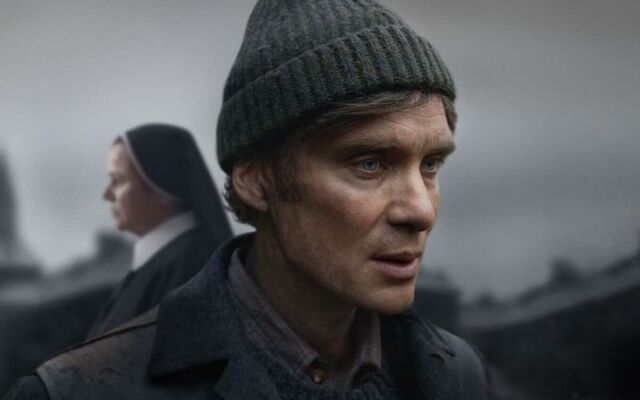Priests have criticised the portrayal of nuns by film-makers and the media, saying they are not all "cruel and hard-faced."
Members of the Association of Catholic Priests (ACP) said the recent movie starring Oscar-winning actor Cillian Murphy, "Small Things Like These," had stirred up a long-simmering belief among priests that nuns were being unjustly treated.
In the film, based on the novel by Irish author Claire Keegan, girls and young mothers are seen suffering punishment and squalor at a girls’ training school and laundry run by the Good Shepherd nuns.
The priests said a forthcoming film about the Tuam babies, by Liam Neeson, was likely to compound the issue.
The ACP acknowledged the failures of industrial schools, orphanages and Mother and Baby Homes. It said the institutions had values which "clearly failed in many circumstances to reflect those of the Gospel," and said people who suffered institutional abuse should be given whatever help is necessary to recover from the trauma.
However, the association said in a statement: "The cultural context of the times is rarely, if ever, mentioned. Religious sisters are vilified. A harsh, hardfaced nun, dressed in traditional habit, has become the standard media image of all nuns. It is false and unjust.
"Those who are still alive are mainly elderly women. We know them and the hurt they experience by this portrayal. The reality is that most have lived quiet, hard-working lives with a minimum of financial reward. In the current atmosphere they are afraid to make their voices heard, knowing the abuse that would be showered on them from many, many quarters."
"Afraid to make their voices heard"
Ireland has fewer than 4,000 surviving nuns, most of whom are living in nursing homes around the country.
Fr Tony Flannery, founder of the ACP, said the film starring Cillian Murphy and Emily Watson was a factor in the decision to release a statement.
"We had been thinking about it for a considerable period of time – there have been a lot of instances of very negative portrayals of nuns in Irish society and in the media," Fr Flannery told the Irish Daily Mail.
He said the "Small Things Like These" presentation of nuns, and Cillian Murphy’s comment about Ireland in the 1980s being like the "Dark Ages" had "brought it to a head."
Fr Flannery, whose sister was a nun, said he had read Claire Keegan’s book, on which the film was based, and enjoyed it.
"The film drifted much more into a presentation of nuns as very violent, ugly and cruel," he said.
"Nobody standing up for them"
"We were also concerned over the fact that nobody in an official position was making any effort to stand up for the nuns, or to say anything positive. We felt that was the role of the bishops."
Nuns had been more progressive than the clergy in embracing change, he said.
The ACP said that, for the past two centuries, nuns had educated people in their schools, and cared for people in their hospitals, at a time when the State was either unwilling or unable to do so.
"Many people were lifted out of poverty and lived successful lives because of the education provided. Many people also lived longer and healthier lives as a result of the care they administered," they said.
Co Limerick priest Fr Roy Donovan stated that the film "may have stirred things up," but the portrayal of nuns had been a source of concern for several years. He said the accounts of cruelty by Irish nuns were not the whole story, and that the stereotyping had been damaging and hurtful.
Fr Donovan said the good work nuns had done for Ireland over two centuries was being "ignored entirely."
Fr Tim Hazelwood, from Co Cork, added: "I am not denying the facts of what has happened in other areas. It has been well-documented and it was wrong. But to paint them all with the same brush, and to blame them exclusively, is also wrong.
"It is much easier to blame somebody for something many people were responsible for – the parents who left their children in those homes, the government who did not help pregnant women, and the Church who allowed the nuns to set up and run the homes without assistance. Only one group is now being blamed."
*This article was originally published on Extra.ie.




Comments